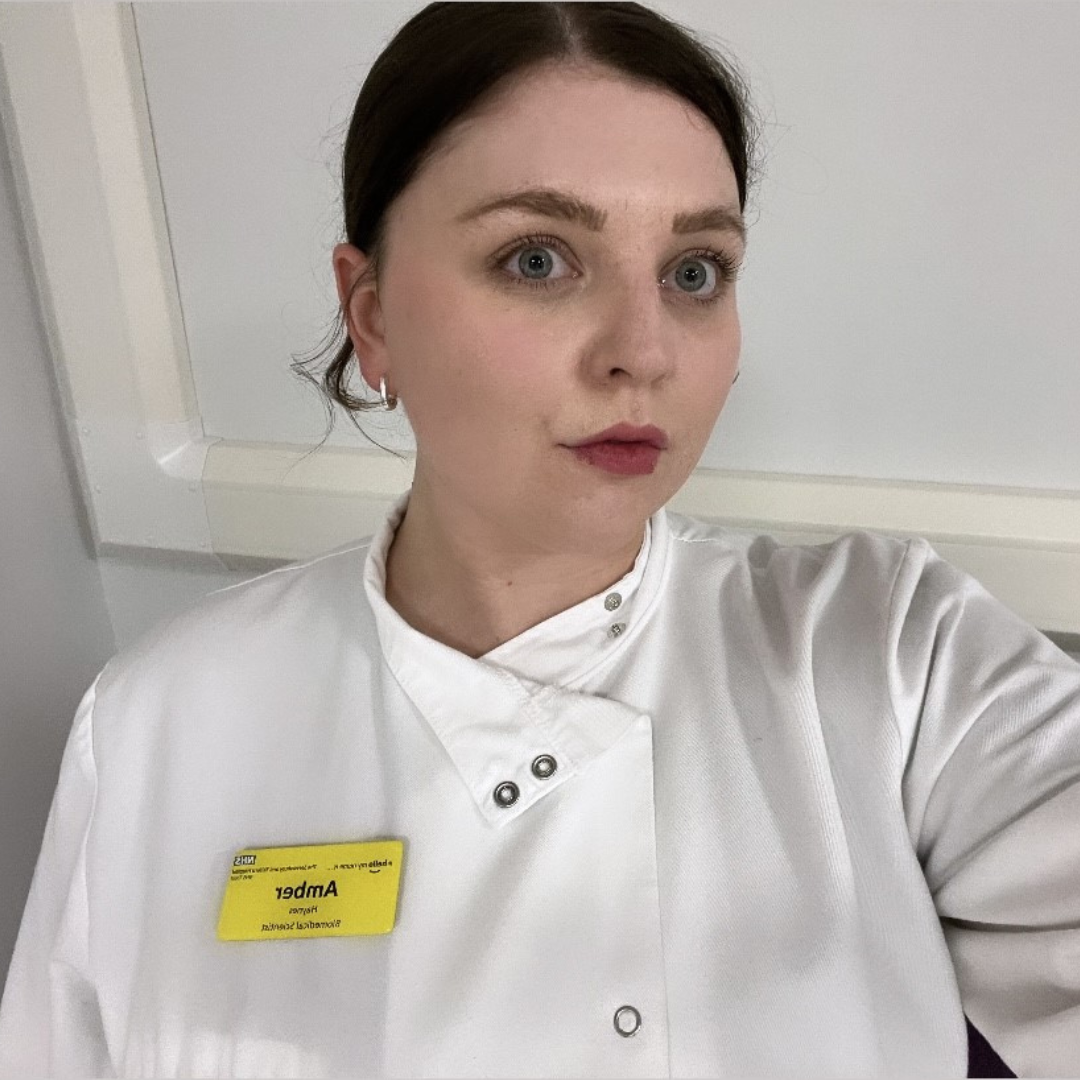Today is Biomedical Science Day!
Biomedical Science Day takes place annually, and is the perfect opportunity to celebrate and promote the profession. Within the NHS, Biomedical Scientists play a vital role in the diagnosing of a wide range of clinical conditions, from blood disorders and cancers, to hepatitis and meningitis. The results they identify are key to providing the appropriate treatment and care for patients.

This #BiomedicalScienceDay2024 we asked Amber Haynes to walk us through a day in her life, in her role as a Biomedical Scientist in Haematology;
"I currently work as a Biomedical Scientist (BMS) in Haematology at Shrewsbury and Telford NHS Trust (SATH). When I am not working on shifts, my usual day begins at 09:00 and finishes at 17:30. As a BMS in Haematology, I rotate through Haematology, Coagulation and Blood Transfusion therefore my first port of call is to check the rota and see where I am today."
09:00
"I am listed on the rota as Haematology BMS. I have a conversation with the BMS completing their night shift and take any pertinent messages. My next job is to check that the analysers used in my section have had their maintenance overnight and have valid quality control results. It is imperative as a BMS that we ensure that the instruments utilised to produce results are operating correctly, producing the correct results, on the correct patients within a timely manner."
09:10 – 13:00
"Once I am satisfied that the analysers in my section are working correctly, I can sit down at a terminal and begin result authorisation. This involves viewing hundreds of Full Blood Count (FBC) and erythrocyte sedimentation results (ESR) and interpreting these results based upon the patient’s gender, age and clinical condition. Throughout the day, as a BMS in Haematology, I telephone abnormal results (such as low haemoglobin results or low neutrophil counts) to clinicians to inform patient management. In addition to telephoning abnormal results, an integral part of our job as BMS’s in Haematology is selection of results for peripheral blood film review. If results derogate outside of reference ranges and this cannot be explained clinically, or a patient’s results have changed significantly, once these results have been communicated to clinicians, as a BMS my next task is to make and review a peripheral blood film."
"Peripheral blood films enable BMS’s to microscopically view all the cellular components of blood. Viewing stained blood under a microscope is a key diagnostic tool and can be utilised to aid in the diagnosis of conditions such as iron deficiency anaemia, leukaemia and malaria. Standard operating procedures (SOPs) inform whether as a BMS I can make comments about a blood film or whether the blood film should be referred to a Haematology Consultant."
13:00
"Lunchtime. I hand over to my colleague who has come in to start the late shift (13:00 – 21:00)."
14:00
"Once lunch is over, I return to my terminal and commence result authorisation once more. The afternoon is the busiest time in our laboratory as, in addition to samples arriving from within the hospital, we also receive hundreds of samples from surrounding GP surgeries. I spend the rest of the afternoon reviewing results, telephoning abnormal results and holding certain results awaiting peripheral blood film review. Throughout the day I also check our laboratory information management system (LIMS) to ensure that results are being processed in a timely fashion. Delay in sample processing can negatively impact patient care therefore ensuring adherence to turn around times (TATs) is another key part of the job role."
16:00
"I review the analysers in my section again and check the afternoon QC values. Any discrepancies in these values must be ascertained, investigated and resolved before a specific instrument is operational. Satisfied with the afternoon QC performance, I return to my terminal to continue result authorisation."
17:30
"On a core day, my shift ends at 17:30. I hand over any results that require urgent attention to the late BMS. I remove my lab coat and wash my hands before heading home."
If you are a Biomedical Scientist and are interested in joining the team here at SaTH, please visit our Healthcare Scientist job pages for all our latest vacancies.
And for those of you who may be interested in a career in this field, keep an eye out for our upcoming post on how to become a Biomedical Scientist!
